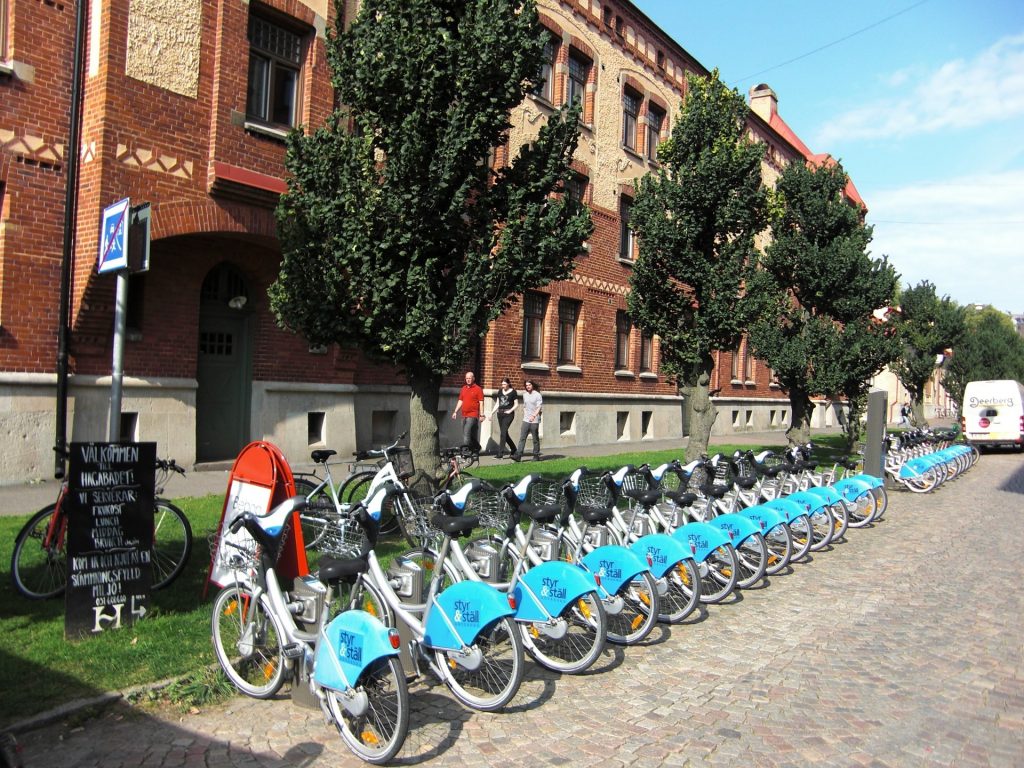Sharing in cities is not a new idea. In fact, cities emerged as an instrument for taking advantage of the benefits of agglomeration and they are the primary point where communities share: from communal spaces and shared infrastructure, to homes and public services. However, in recent years, collaborative initiatives have multiplied and expanded at an unprecedented pace, giving rise to the so-called sharing economy or collaborative economy.
This new economic model has quickly developed across different sectors. Airbnb and Uber are probably two of the most well-known companies within the sharing economy, but the number of new shared services and products has grown exponentially in the past decades – with activities ranging from ride-sharing and temporary accommodation to shared food, personal services and money lending. What factors have facilitated the rapid diffusion and exponential growth of sharing activities and cooperation platforms in cities?
In a recent article, we argue that two factors have been critical to the rapid development of these new business models: the impact of technology and culture and ideology. First, new digital technologies make sharing easier by creating new markets and allowing for efficiency, scalability and transparency of the sharing systems. Second, culture and ideology, along with changes in people’s preferences and behaviors, are also as key as technology when it comes to embracing new collaborative behaviors and sharing models.
Impacts on Cities
In the case of cities, these new dynamics of change are transforming and creating new economic realities, as we mentioned in our latest book Cities and the Economy. More precisely, sharing economies directly affect the functioning of cities. They also impact how city dwellers access products and services. All in all, collaborative business models have the potential to bring important benefits both to cities and citizens, such as improved services, greater economic and social advantages, more entrepreneurial activities, and enhanced efficiency in urban areas.

However, the sharing economy can also result in negative effects on urban economies and it raises concerns about labor regulations, public safety, and fair competitive conditions, among others. In our latest post entry, we examine these potential impacts of the sharing economy in urban areas through the example of a home-sharing platform in the city of Barcelona.
Governing the Collaborative Economy
The sharing economy has the potential to impact and transform cities in many different ways (both positive and negative). It can improve the efficiency of urban systems and help solving current urban challenges. But as previously mentioned, it may also have damaging effects on urban economies and impact citizens’ lives if not managed properly. In order to take advantage of the benefits and opportunities offered by the sharing economy, local governments should address the issue of regulation, which lies at the core of the debate.
Existing regulatory frameworks in cities are often unprepared and outdated for these new business models. City leaders and policy-makers need to redefine current legislations and create new regulations to find a balance between promoting innovation and new business models, while avoiding weak labor regulations, ensuring consumer safety and taking into account existing industries. If local leader are able to reach the right balance between social and economic goals, cities could be transformed into more equitable, inclusive, livable and prosperous places.
How do you think the sharing economy is affecting your city?





Thanks for such great article! I totally agree with you that collaborative plans of action can possibly convey essential advantages both to urban communities and nationals.
“I don’t see the Sharing Economy as an exclusively urban phenomenon – farmers can share their expensive machinery through collaborative consumption startups. However, its effect may be to increase the rural-urban divide.
Yes, I do agree that collaborative economy works best in development to cities. In fact, I say we should not limit ourself to only economy but also in every aspect of life. Obviously, when we trust people and collaborate with them, the growth of everyone would be at its best…
Anyway, I’m visiting this blog for the past couple of days and I must say the content provided here has improved my knowledge of different field of interests… 🙂 🙂
Looking forward to Cities and the Economy soon.. 🙂
a shared economic strategy or a collaborative economy is indeed very effective in generating the economy,